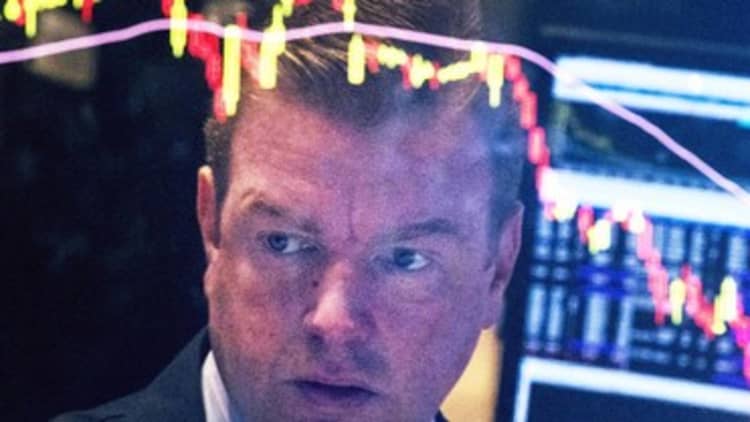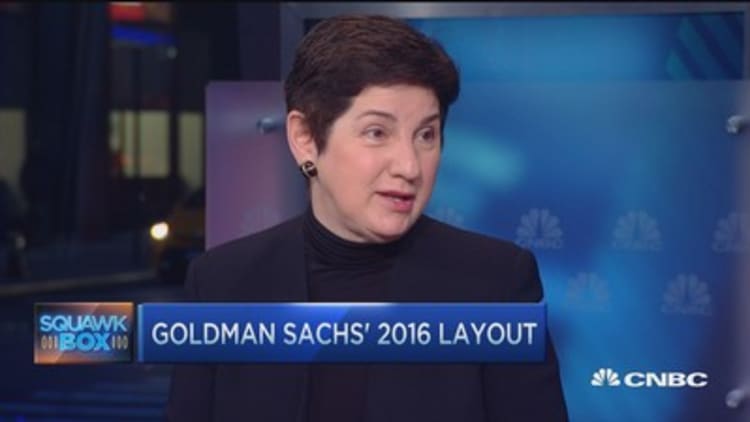
The new year has become a roller-coaster ride for investors, but Strategas Research Partners' Jason Trennert said Tuesday the volatility may not signal "the big one" is coming. Instead, it's a symptom of the new normal in stock markets.
Major U.S. indexes have entered correction territory as China's currency depreciation and stock market ructions, as well as further deterioration in crude markets, stoke fear among investors.
"I think there's a tendency after ... the global financial crisis to think that every time there is a financial crisis, it's the big one. It's the 100-year storm," Strategas' chief investment strategist told CNBC's "Squawk Box." "I think we have to get used to the fact that these things are part and parcel of just of the sturm und drang of financial markets."
Markets went 48 months without a correction until August, the longest period without a 10-percent pullback on record, Trennert noted. But now that the Federal Reserve is normalizing interest rates, volatility will be a more typical part of markets, he said.
To be sure, Strategas factors in the possibility of a black swan event in its 2016 base case scenario, partly related to China's yuan devaluation and its impact on emerging markets and worry of a deeper correction.
With the average S&P 500 stock in correction, Trennert said markets are getting "awfully close" to oversold.
"These things get a life of their own, but we'll probably put in the bottom with some sort of capitulative event. There will be someone who gets taken out, toes first, probably in the energy or materials sector," he said.
Still, there is no economic model that would suggest the U.S. is at danger of falling into recession with crude prices down about 70 percent from mid-2014, Trennert said.
While energy prices have dragged on S&P 500 earnings, lower oil costs also provide economic stimulus as consumers save at the pump and businesses reap lower input costs.
The bull market may be in the last innings, but Goldman Sachs' Sharmin Mossavar-Rahmani is not expecting a recession. Goldman's base case sees 3 to 4 percent growth for U.S. stocks in coming years, driven primarily by dividend yields and moderate earnings support, the firm's chief investment officer for private wealth said Tuesday.
While no one can say whether a 20 percent correction will occur in the interim, Goldman does not see that happening.
"We don't think you can get those kinds of negative numbers unless you're expecting a recession, and our view is that the U.S. economy is actually on a solid footing," she told "Squawk Box." "All these worries about secular stagnation or shocks from China are not warranted."

In the current environment, it's best to focus on low-volatility defensive stocks with high dividend yields, James Norman, head of equity strategy at QS Investors, told "Squawk Box."
These equities can help investors weather the storm at a time when macroeconomic factors are moving markets and driving overreactions, he said, noting the strategy helped QS end 2015 with positive returns.
"We always try to stay fully invested. Because it's so hard to predict what's going to happen that it's better to be prepared," he said.
—CNBC's Maneet Ahuja contributed reporting to this story.



